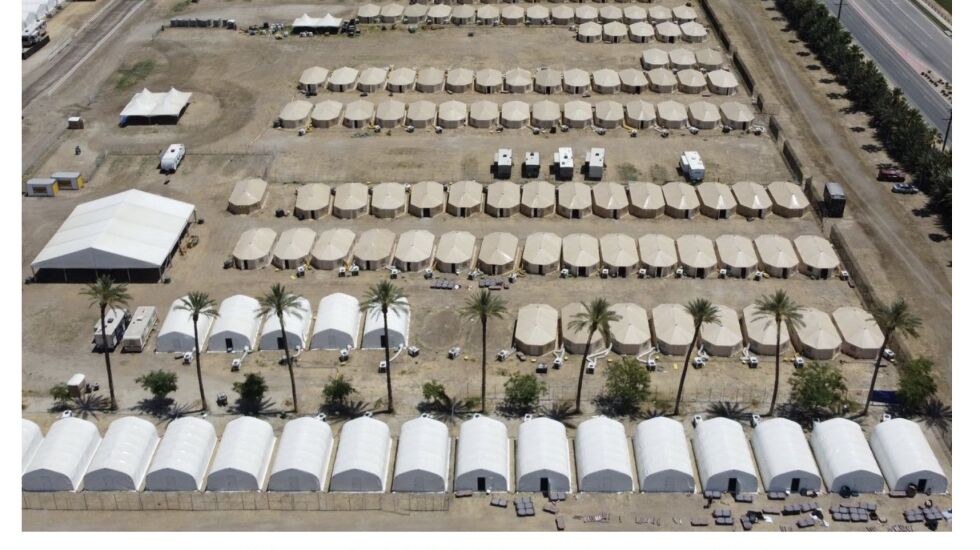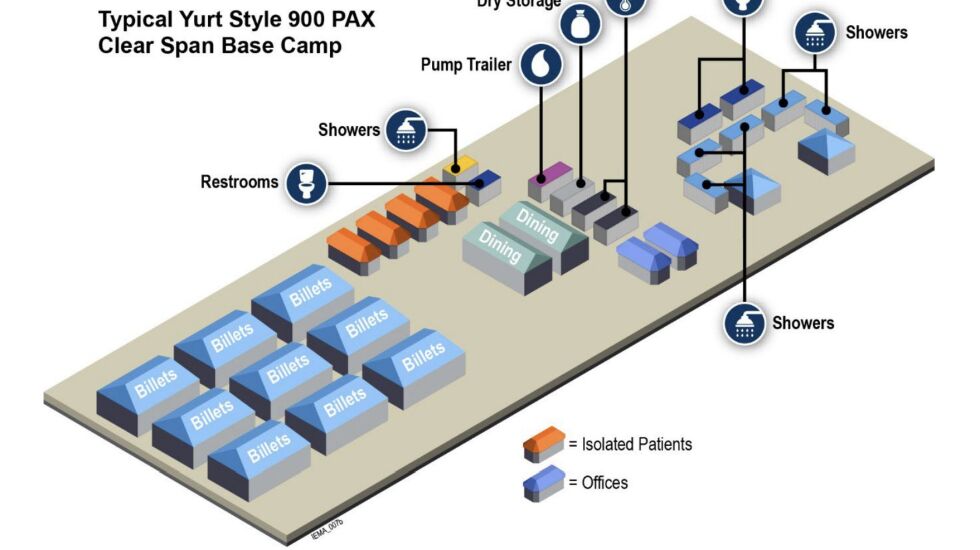Months after Mayor Brandon Johnson first proposed “winterized base camps” for migrants camped out at police stations — now experiencing Chicago’s cold — the first tent frames went up Wednesday.
GardaWorld, the controversial contractor picked to build the tents, began bringing equipment to the site in the Brighton Park neighborhood this week and erected Wednesday a pitched-tent frame along California Avenue. Additional frames were laid out along 38th Street.
The city has previously said construction will take a matter of days. The site is expected to immediately house migrant families — a total of 500 people — and possibly 2,000 eventually.
It comes as 1,200 migrants remained camped out at police stations and O’Hare Airport on Wednesday, according to the city’s Office of Emergency Management and Communications.
Those numbers have fallen significantly in recent weeks — down from 3,300 at stations in mid-October and nearly 900 at O’Hare in early October — and several stations have been cleared out.
The camp has drawn vocal opposition from local residents who fear it will negatively impact the neighborhood. Dozens of those residents protested Wednesday as the first frames went up.
The site has also faced opposition from migrant advocates concerned about the safety of housing migrants at the former zinc smelting site, which was found to be polluted with toxic heavy metals.
At a news conference Tuesday, Johnson said he expected the city’s environmental report to be out by the end of the week. Mayoral spokesman Ronnie Reese said mitigation of the contaminants would be completed by the end of the week as well.
The city and state haven’t released specifics of what the camp will look like, though the rendering of the so-called “soft-sided exterior temporary housing” in the $29.3 million GardaWorld contract had a barracks-like appearance.
The tent would be outfitted with HVAC units to be able to heat the tents up to 70 degrees from 40 degrees, according to the contract.
Michael Loria is a staff reporter for the Chicago Sun-Times via Report for America, a not-for-profit journalism program that aims to bolster the paper’s coverage of communities on the South Side and West Side.










